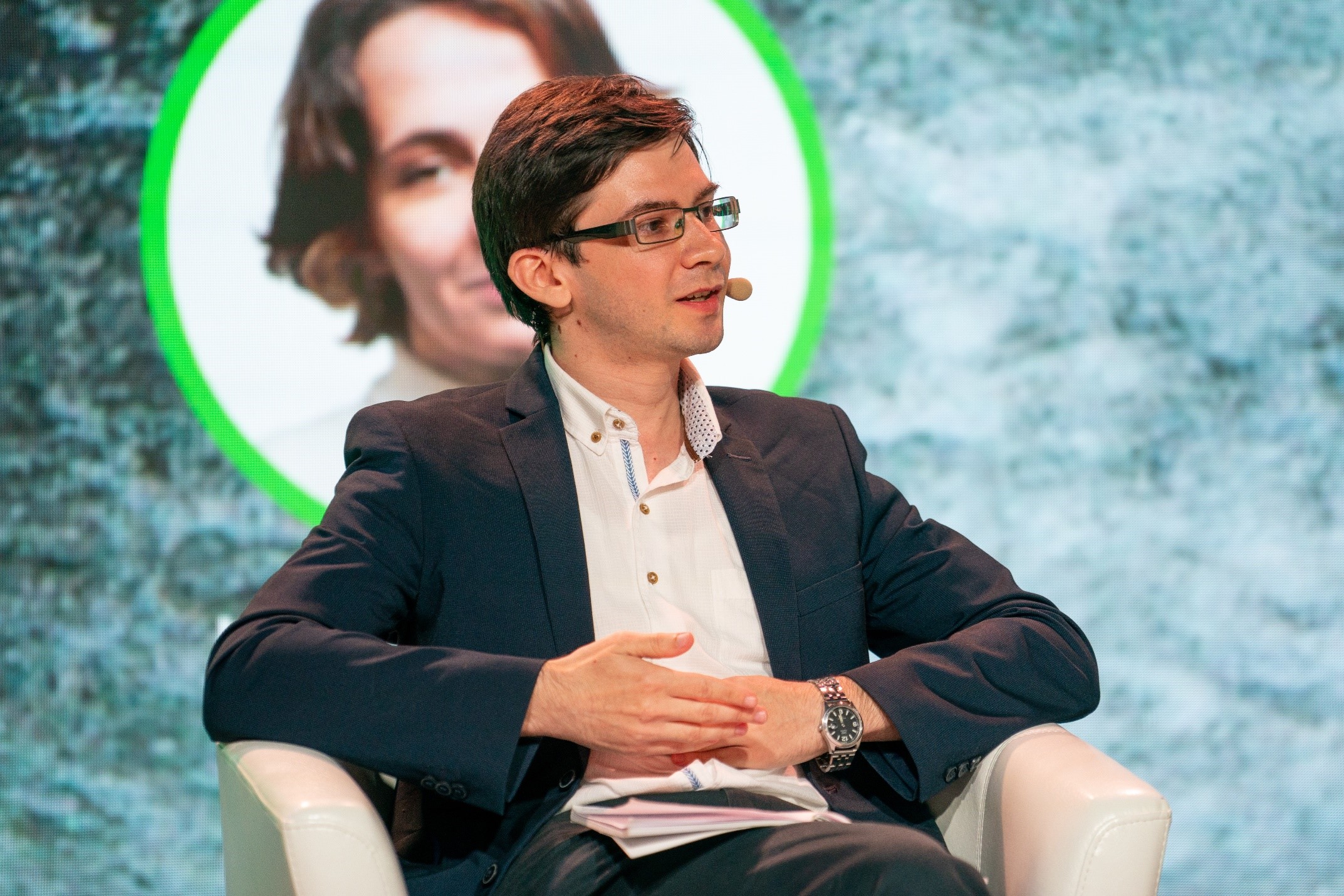As scientists around the world continue to gain an understanding of global climate change, each scientist approaches their research with a different perspective. Flagstaff’s Kostiantyn Viatkin focuses on the impact of land carbon on climate change, specifically how climate scientists can improve the accessibility and transparency of models of land carbon.
Kostia is a graduate student working with Yiqi Luo and his lab with the Center for Ecosystem Science and Society (ECOSS) at Northern Arizona University. The lab focuses on applying their unique matrix-model approach, which can be used to create standardized models. By standardizing the models used to predict land impact on climate change, it can allow us to gain a better understanding of what goals should be set globally to help mitigate climate change. “An aspect that I’m particularly interested in is the mineral part of soil and how it affects the carbon cycle”. The mineral aspect of soil is all of the inorganic components, including sand, loam, and weathered rock.
Kostia received his undergraduate degree from V. N. Karazin Kharkiv National University in Ukraine in Physical Geography. This later transitioned to his interest in climate science through his experiences in Ukraine’s National Scientific Center “Institute for Soil Science and Agrochemistry Named after O.N. Sokolovsky”, where he researched and created digital soil organic carbon maps. Through his experiences at the National Scientific Center, he has also worked with the United Nations Food and Agricultural Organization on mapping carbon.
”“Different models predict different outcomes for the climate”
What inspired you to pursue ecosystem science?
Kostia had another life as a programmer, in case his passion for geography didn’t go as well as he had hoped. But he couldn’t stop being amazed at how complex and beautiful nature is, and always maintained his interest in understanding how these amazing natural systems work.
His passion for earth sciences and geography was fueled when he won a geographic olympiad in high school that got him a full ride to V. N. Karazin Kharkiv National University. From there, he combined his interest in geography with his knowledge of programming in the form of digital mapping, which has segued to his research in carbon and ecosystems modeling.
How do you hope your research will impact society?
The uncertainty in land carbon modeling has become a big issue for scientists’ ability to predict what’s going to happen with climate change, and also to gear initiatives to help mitigate impacts of climate change. Certain countries are setting goals for carbon neutrality, but they are based on assessments of terrestrial carbon that are uncertain. Kostia’s goal is to help eliminate some of that uncertainty by creating clearer models that will help guide those goals to create the most effective results. Land carbon is very uncertain, but it may be one of the bigger ways society can impact global climate change. He says, “the impact that we can make in the energy sector is the same magnitude we can make in the land sector”.
”“The large uncertainties in these predictions of the land carbon cycle is a big issue, both for our ability to scientifically predict what is going to happen but also for practical issues”
What is one of the unexpected challenges that you have encountered in your research?
The Luo lab started this project about a year ago, and everyone involved was expecting quick results. Like most of us have experienced, they have been impacted by technology issues. This mainly occurs when the models that they are trying to standardize are so complex that it takes a lot more effort than expected to decipher and accurately represent the data in the new model. This struggle has only reinforced Kostia’s desire to make these models more simple and transparent, so that other scientists and the general public don’t have to struggle like he did when trying to understand the models. “I was surprised how difficult it is to make the models transparent and reliable, to the point where we are sure about the global conclusions that we are making from our research.”
Besides your research and grad student work, what is something else you enjoy learning about?
Kostia is very interested in learning about history in his free time, and he mainly focuses on learning about ancient civilizations like Greece, Rome, and Egypt. He also is interested in philosophy, and often approaches his interest in nature as both a scientific and philosophical thinker.
What would you tell someone who is thinking about pursuing their interest in climate science?
“It is an extremely relevant and exciting field, and one that will only keep growing in the future.” Kostia also explains how ecology is incredibly impactful on not just science, but also on the economy and society as a whole. “Ecology is one of the sciences of the future, and sadly by necessity.”







 Board member, Adam Marsh, and lead paleontologist at Petrified National Forest, works with a team of scientists to uncover an approximately 300 million-year-old fossil skeleton discovered at Canyonlands National Park in Utah (June 2024)
Board member, Adam Marsh, and lead paleontologist at Petrified National Forest, works with a team of scientists to uncover an approximately 300 million-year-old fossil skeleton discovered at Canyonlands National Park in Utah (June 2024)